Ethiopia Women’s Groups
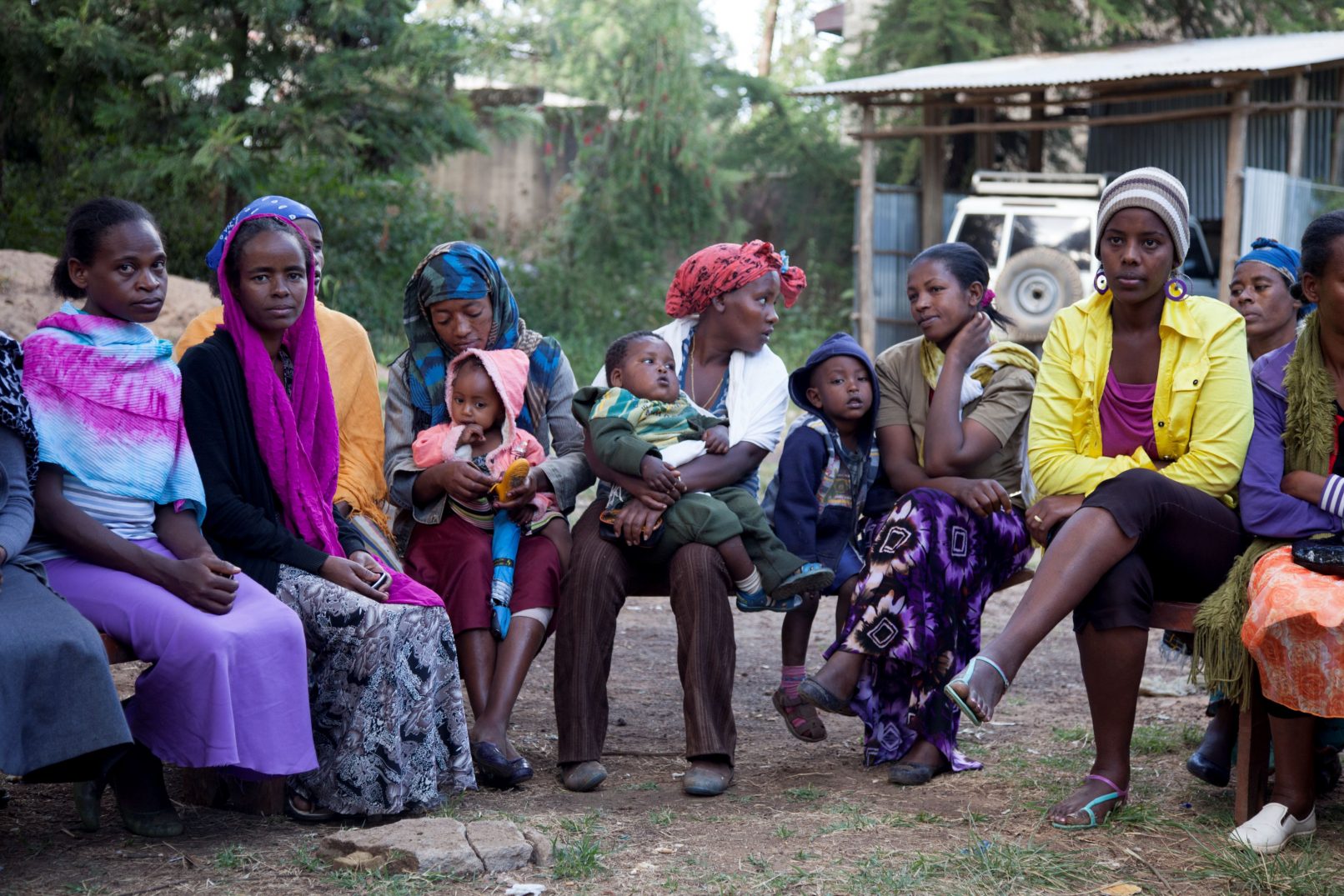
Mothers living with HIV and their HIV positive mentors in Ethiopia meet regularly to support each other and show that it is possible to live a happy and positive life despite the stigma and discrimination surrounding the virus.
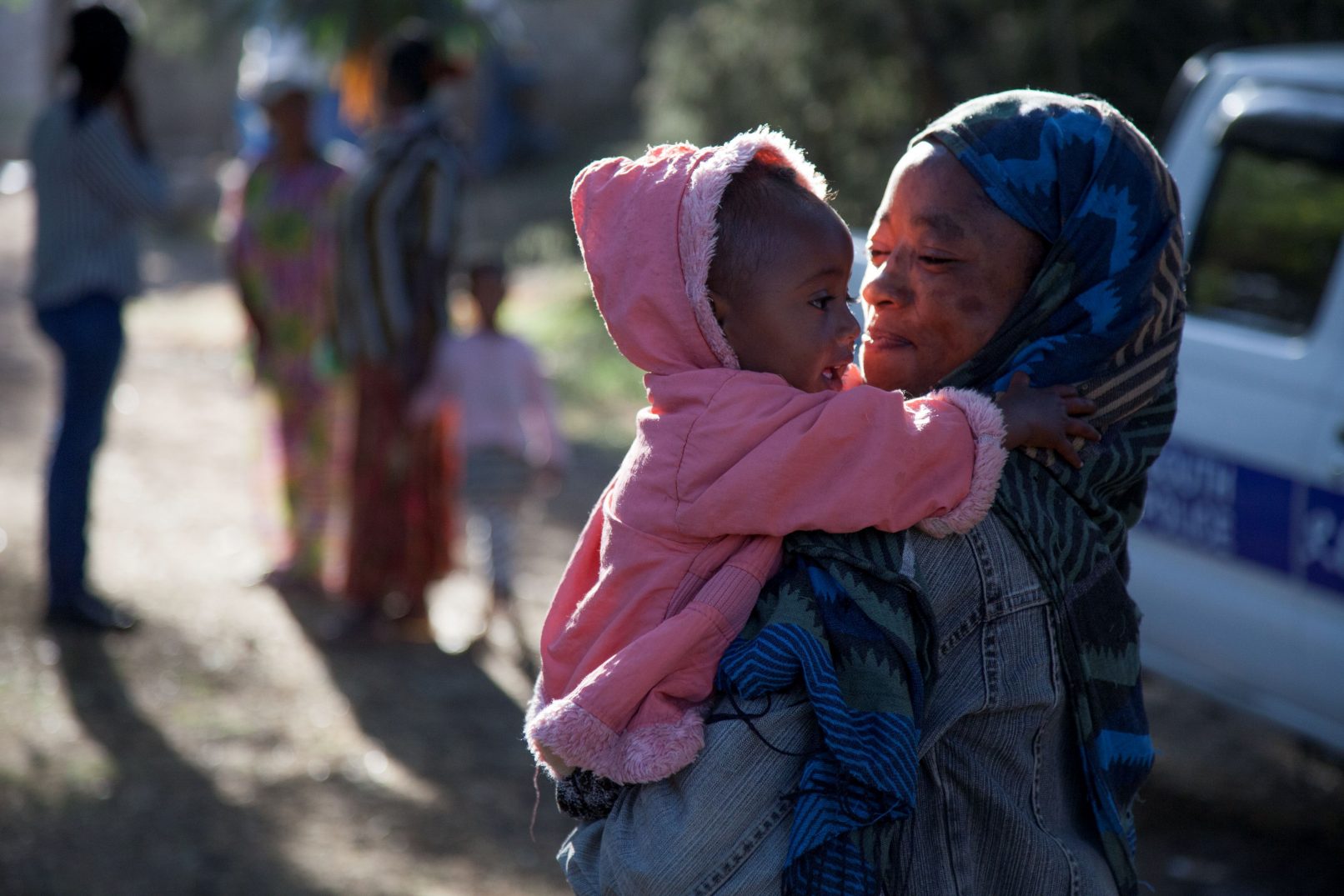
A positive mother and her HIV free child. Thanks to the support from Tesfa Association's Home Based Carers and Mother Mentors positive women learn how to prevent HIV transmission to their babies.
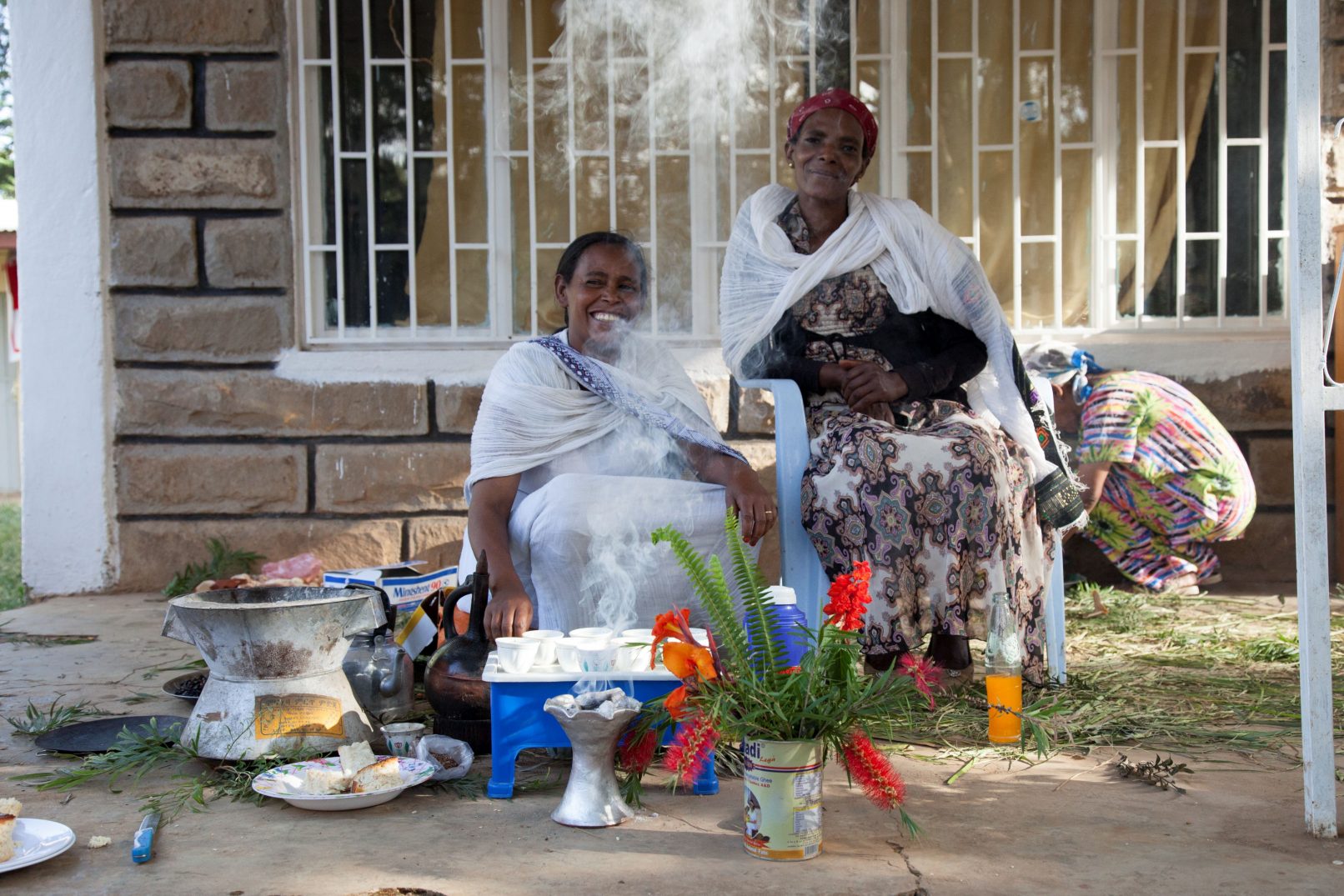
Seblework Kebede and Roman Alemu (right) are both members of a mother support group. They are both living with HIV. As a home-based carer, Seblework supports Roman. They have both disclosed their positive status to tackle stigma and discrimination and to teach the community and other mothers that it is possible to live positively with HIV. The women run coffee ceremonies in the community to bring people together to raise awareness about HIV.
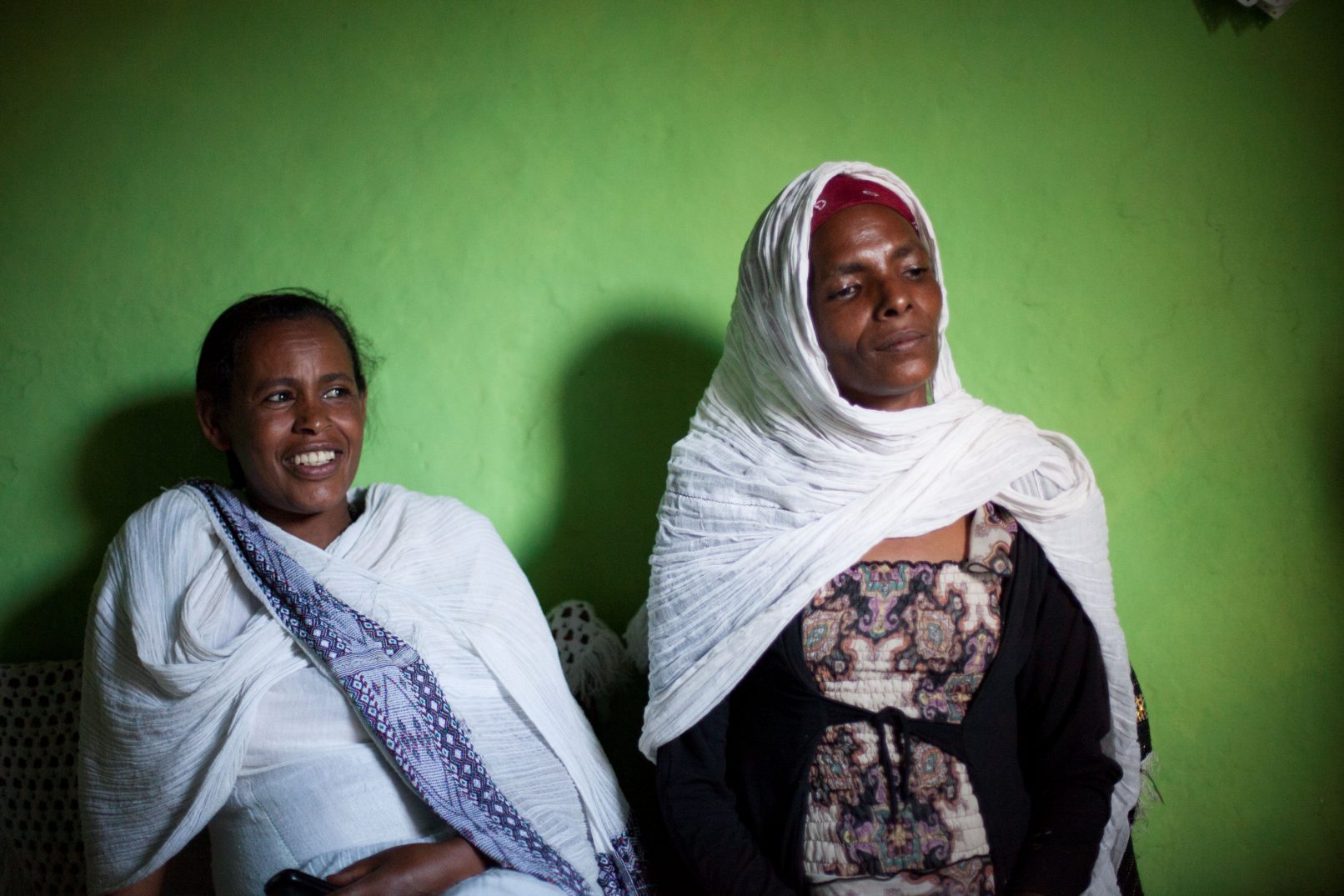
Seblework Kebede and Roman Alemu (right) are both members of a mother support group. They are both living with HIV. As a home-based carer, Seblework supports Roman. They have both disclosed their positive status to tackle stigm and discrimination and to teach the community and other mothers that it is possible to live positively with HIV. The women run coffee ceremonies in the community to bring people together to raise awareness about HIV.
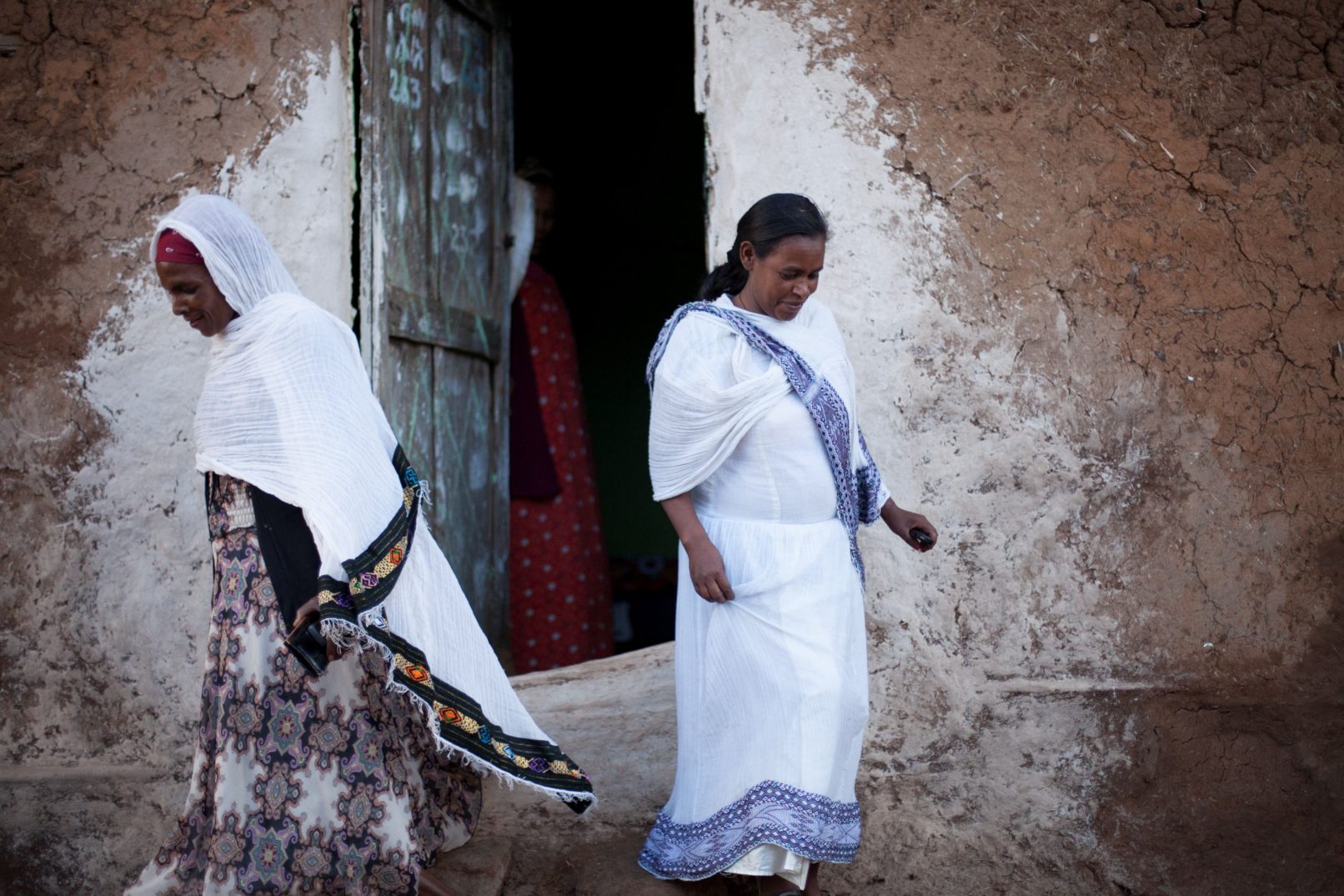
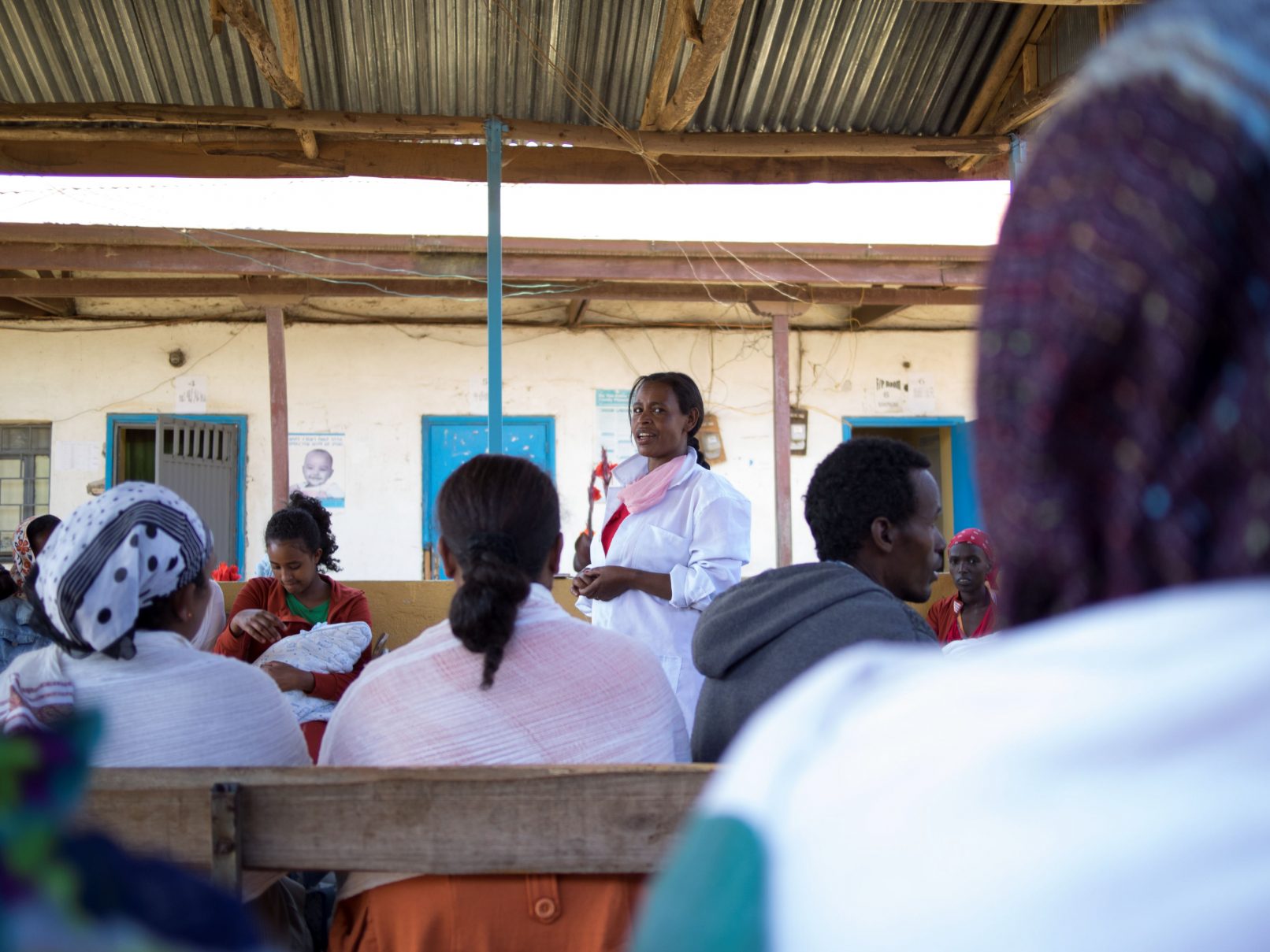
Seblework Kebede, a mother mentor in Hossana, teaches in-patients at the health facility about HIV. She shows them that as a woman living with HIV herself, and through acceptance, she can live a normal and fulfilled life. As one official said: "Seeing is believing."
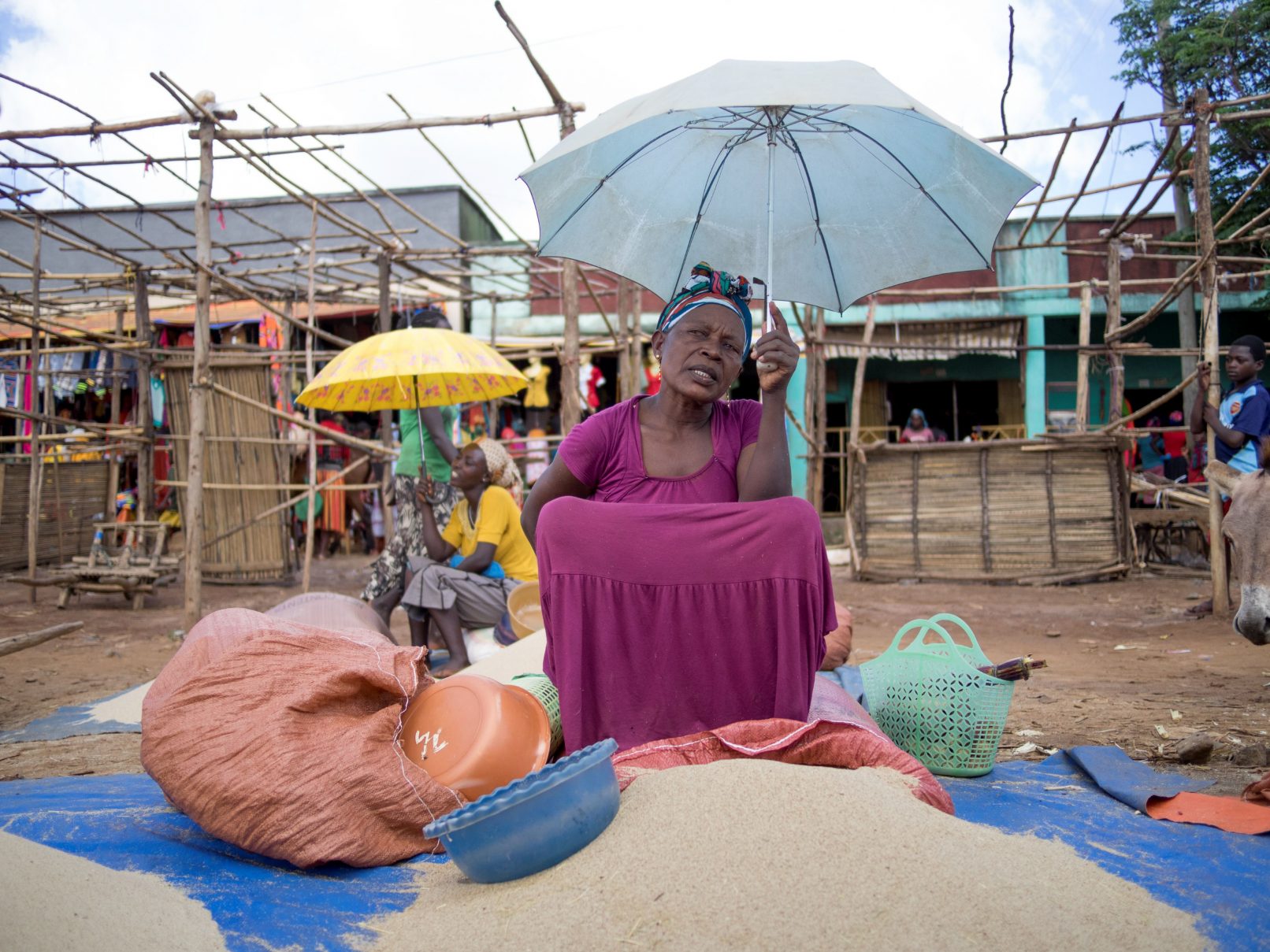
Almaz Demissie is a member of an SHG selling millet at Jinka open market to support her family.
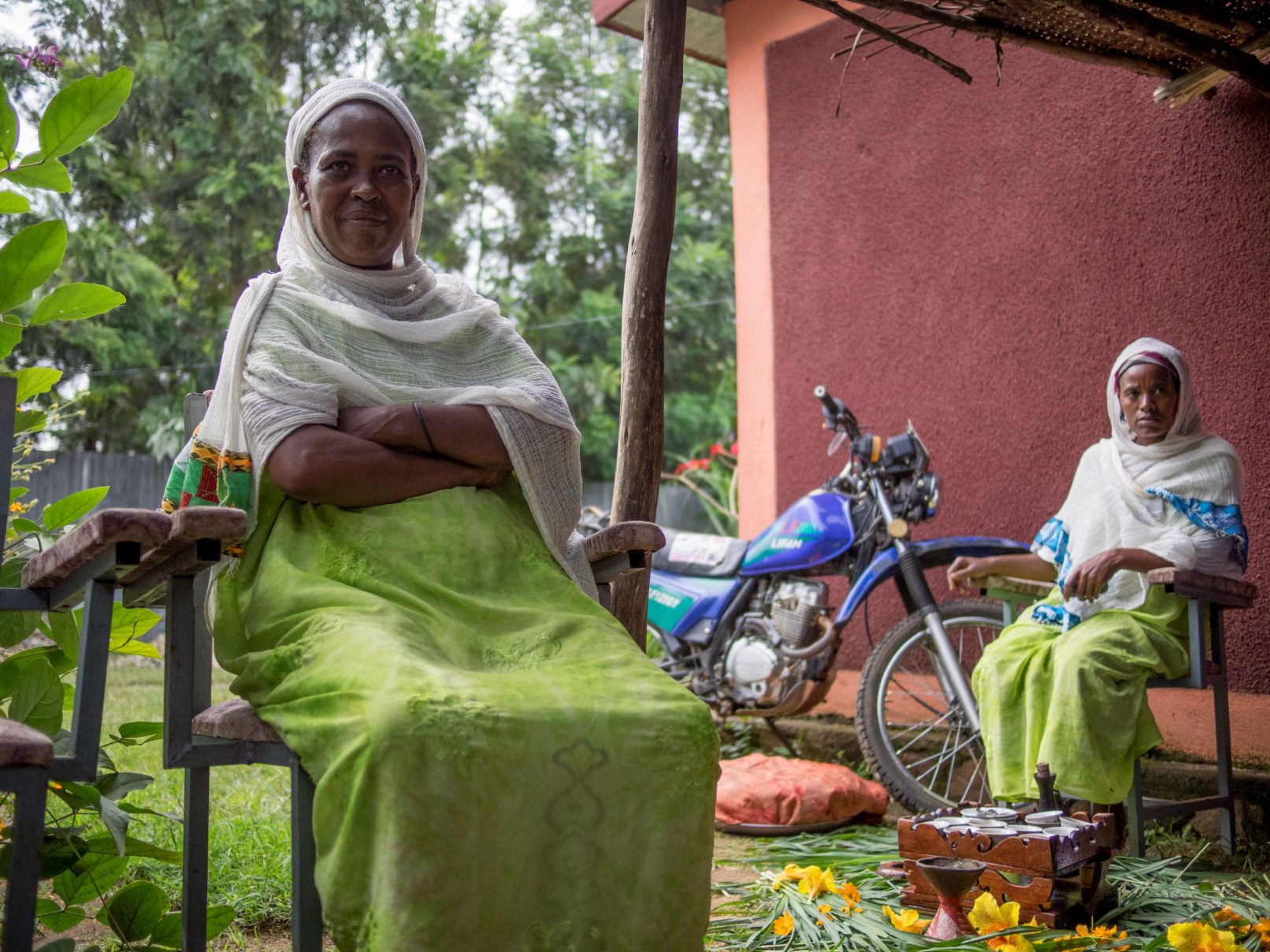
Asefesh Gezahegn is a member of the Edgetbehibret self help group. The name of the group means Growing Together. Asefesh has gone from selling the local arki or alcohol to earn a living to selling household goods and food like njera and shuro. That took me out of pverty.' Then she was able to borrow 5000 birr from her self help group and build her own home. Having her own home, she says, gives her hope for the future and security.
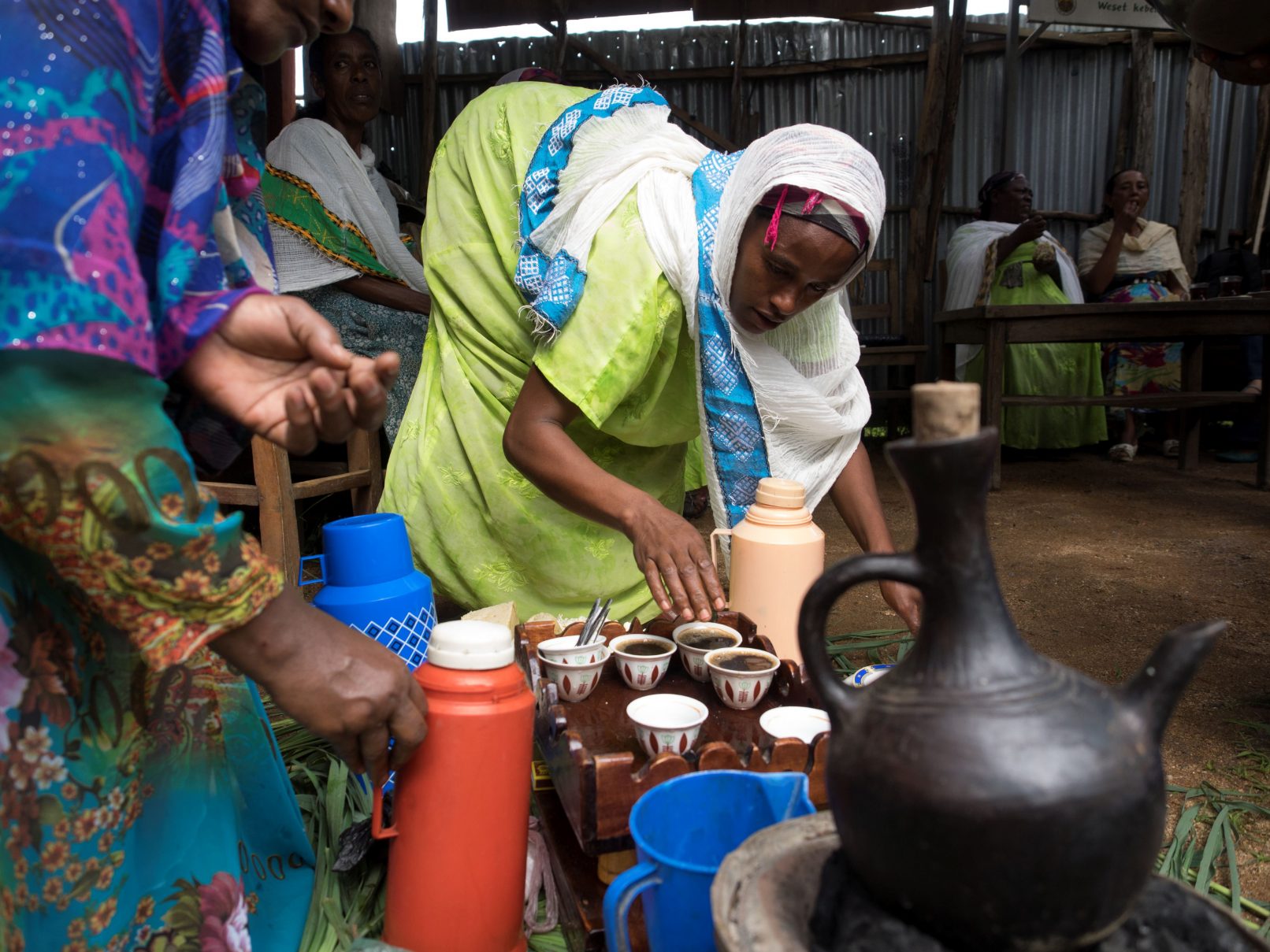
Asefesh Gezahegn prepares the coffee for the start of her self help group meeting.
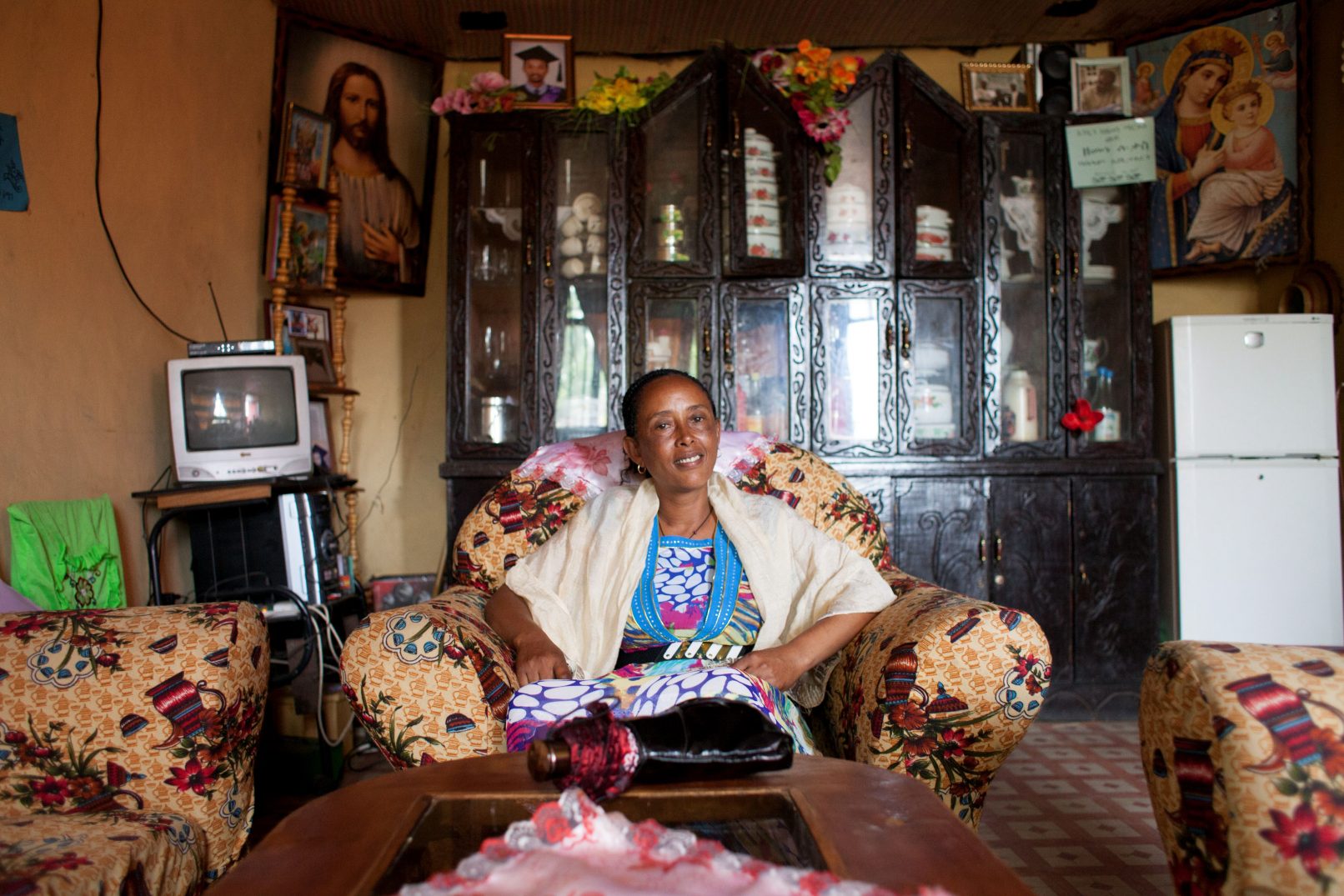
Genet Kasu is a member of one of WSA women SHG and a secretary of Esubalew group. Her life has changed since she joined the group. She can now exercise her rights and has her own thriving livelihood.
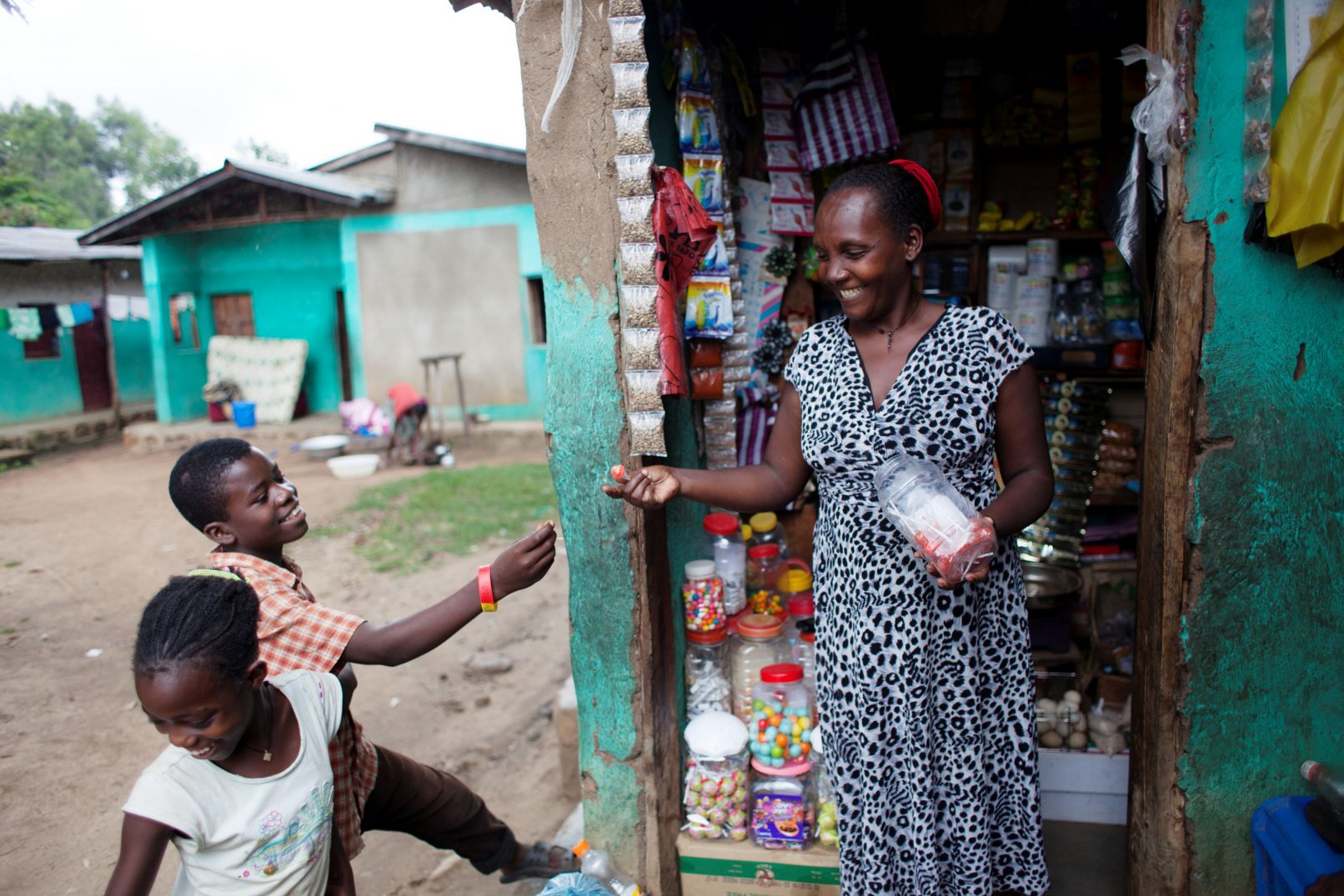
Maregwa Tekle sells candies to children from her own shop in Jinka which she bought thanks to savings and loan from her self-help group.
She joined her self help group in 2008 and started by contributing 1 birr savings a week from petty trading. Eventually she scaled up her trading and was able to borrow and save enough money to build a house and set up and stock a new shop. She is a wealthy woman in the town now and has 15.000 birr savings of her own.
"The group changed my life. I was about to run away because of the magnitude of the problems and challenges I faced in my life - my husband had left me and I was continuously being robbed by thieves - but the training I got on saving, marketing and how to make a profit helped me in my business. Now I don’t want to get married. I can live by my self and I am even supporting my mother, grand-mother and my niece in my home."
She joined her self help group in 2008 and started by contributing 1 birr savings a week from petty trading. Eventually she scaled up her trading and was able to borrow and save enough money to build a house and set up and stock a new shop. She is a wealthy woman in the town now and has 15.000 birr savings of her own.
"The group changed my life. I was about to run away because of the magnitude of the problems and challenges I faced in my life - my husband had left me and I was continuously being robbed by thieves - but the training I got on saving, marketing and how to make a profit helped me in my business. Now I don’t want to get married. I can live by my self and I am even supporting my mother, grand-mother and my niece in my home."
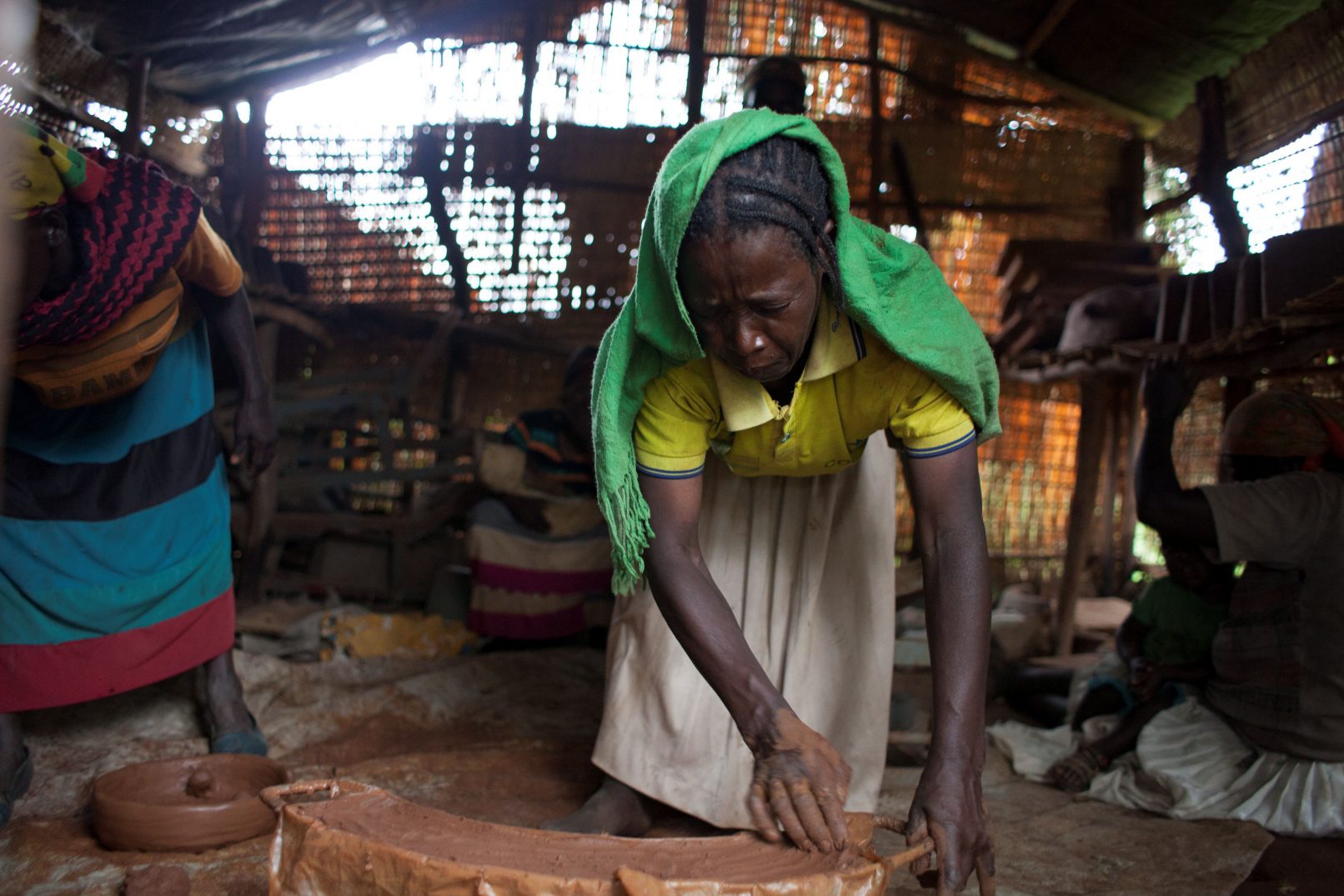
Women in the cookstove workshop in Goldia Village, Bene Tsemay district. They have been supported through the SCIP project to try producing and marketing clay cookstoves. This is a project supported by the SCIP programme. The women say that the cookstoves are more fuel efficient and better for their families' health (less smoke) but they are yet to make a profit from them as the clay costs a lot to transport to the workshop.
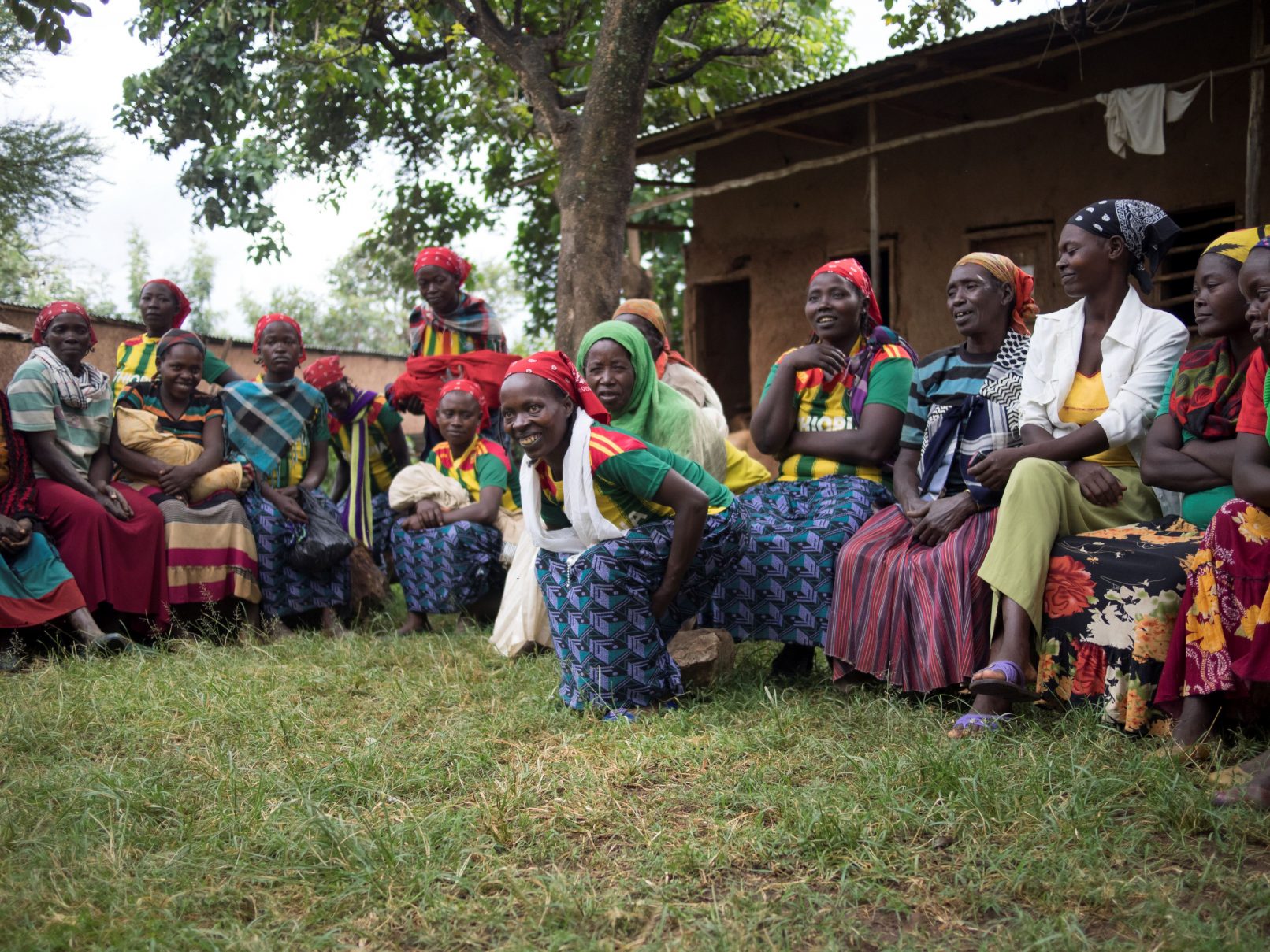
Self help groups from the Women's support association at their weekly meeting in Goldia village, Bene Tsemay. The women are from the mena community, a traditionally excluded community due to their historical role as grave diggers and brick makers.
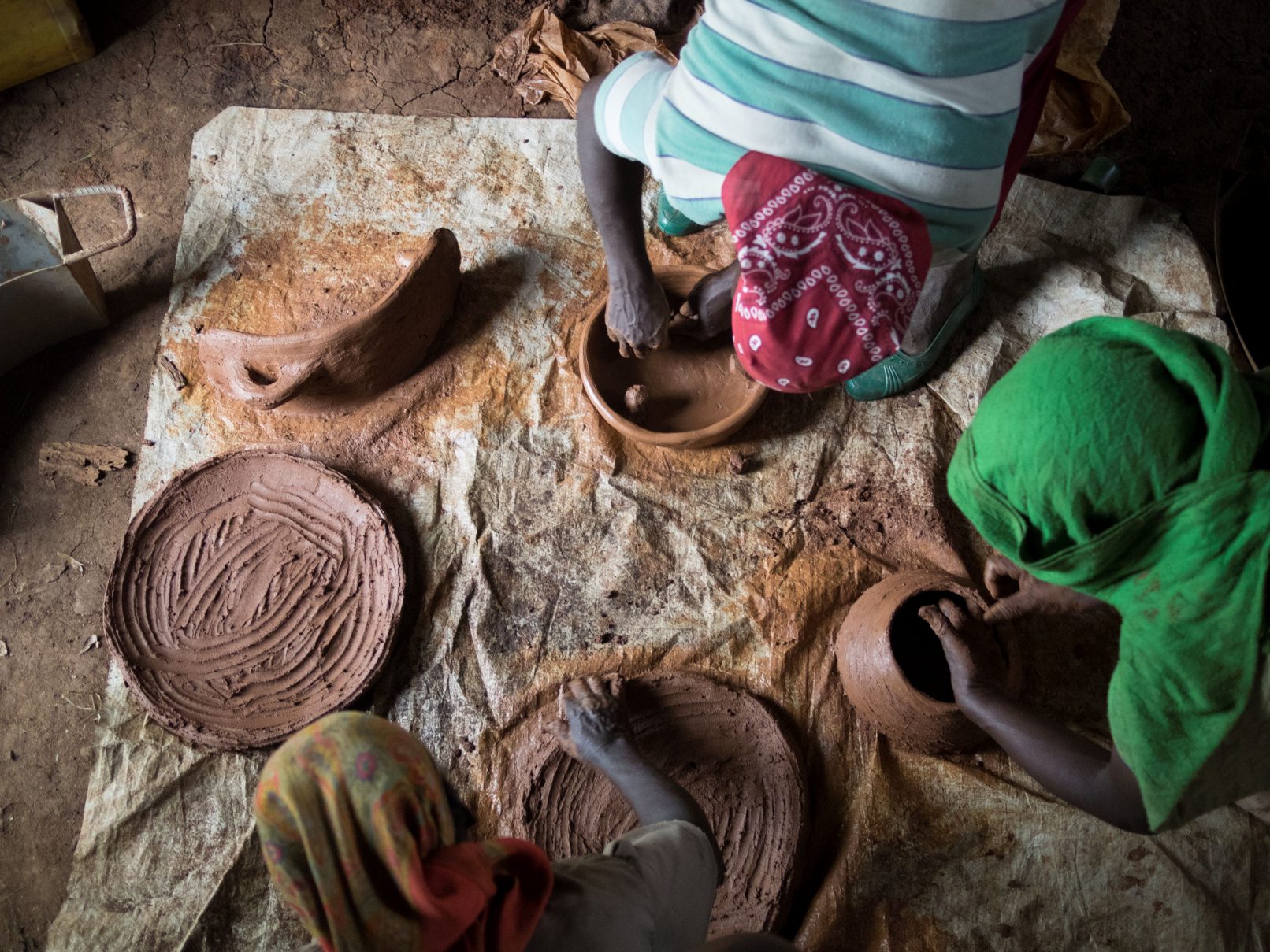
Women from a WSA self-help group now make improved cookstoves to sell in market.

Women from several self-help groups in Goldia Village, Bene Tsemay district meet to discuss the benefits and challenges of the SCIP energy project.
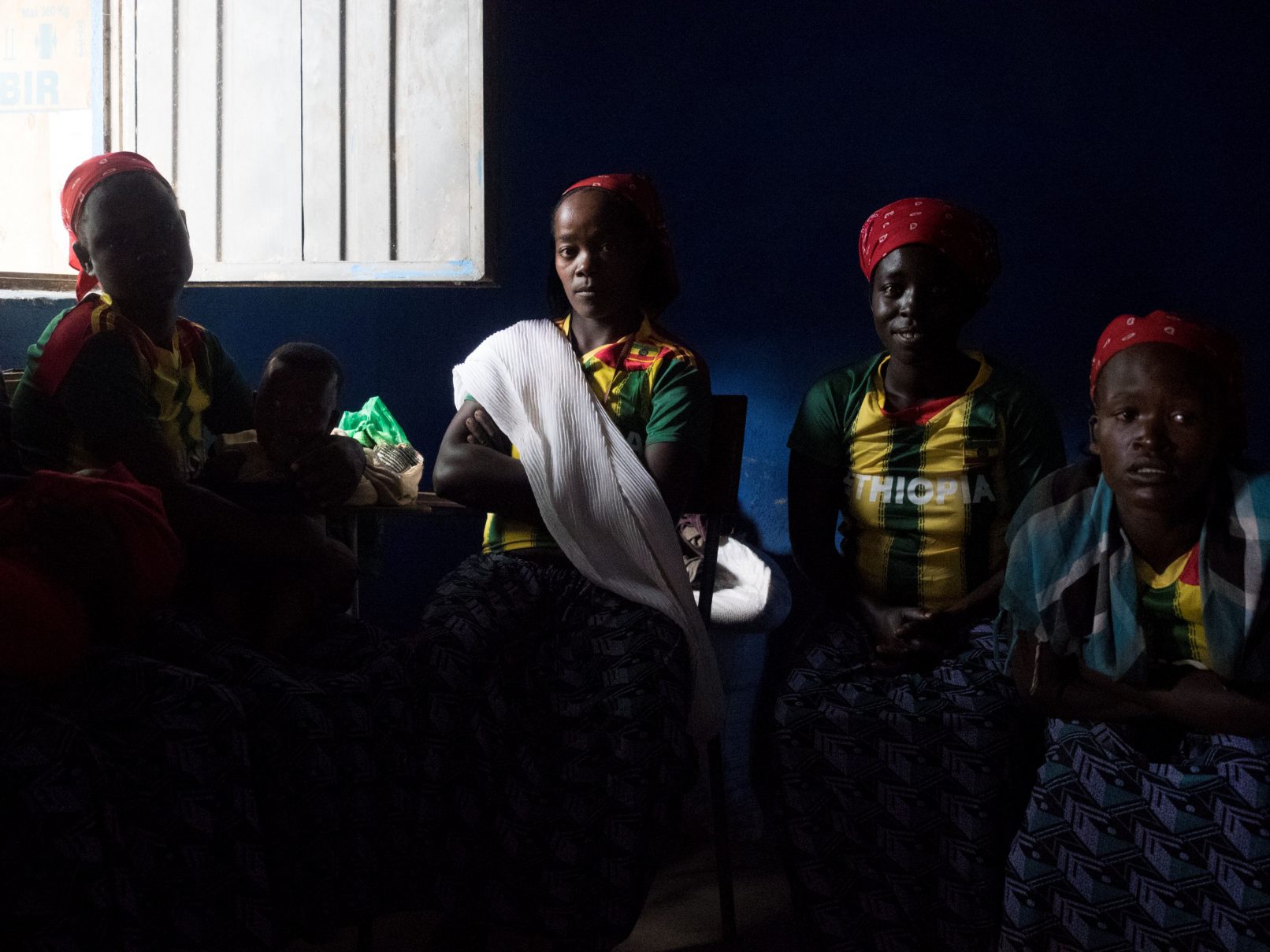
Members of several self-help groups in Goldia Village, Bene Tsemay district meet to discuss the benefits and challenges of the SCIP energy project.
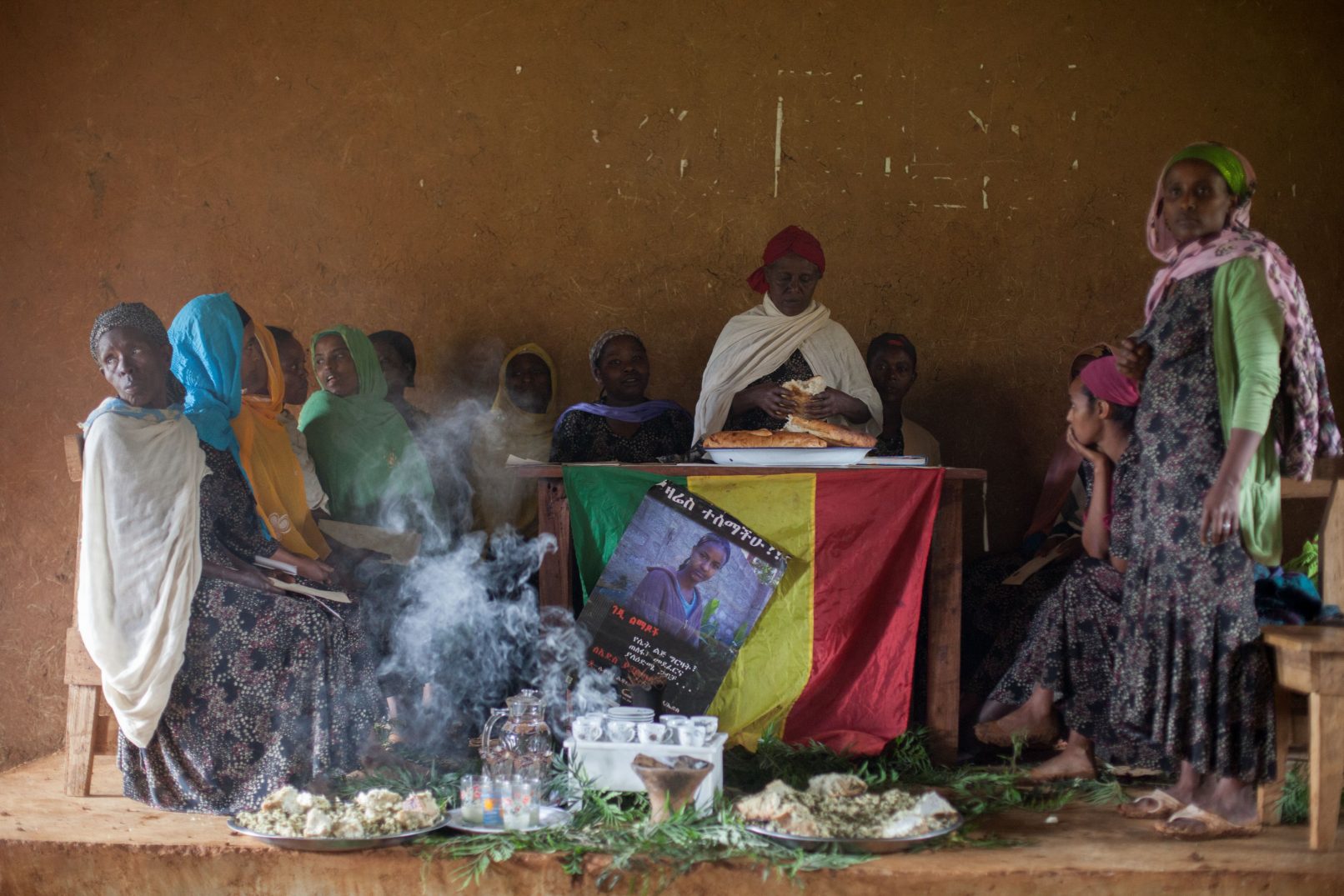
A coffee ceremony takes place at the start of every meeting of the members of the self-help groups and Abebaw Cluster Association (CLA) in Tolta town in Bene Tsemey district, 50 kms from Jinka.
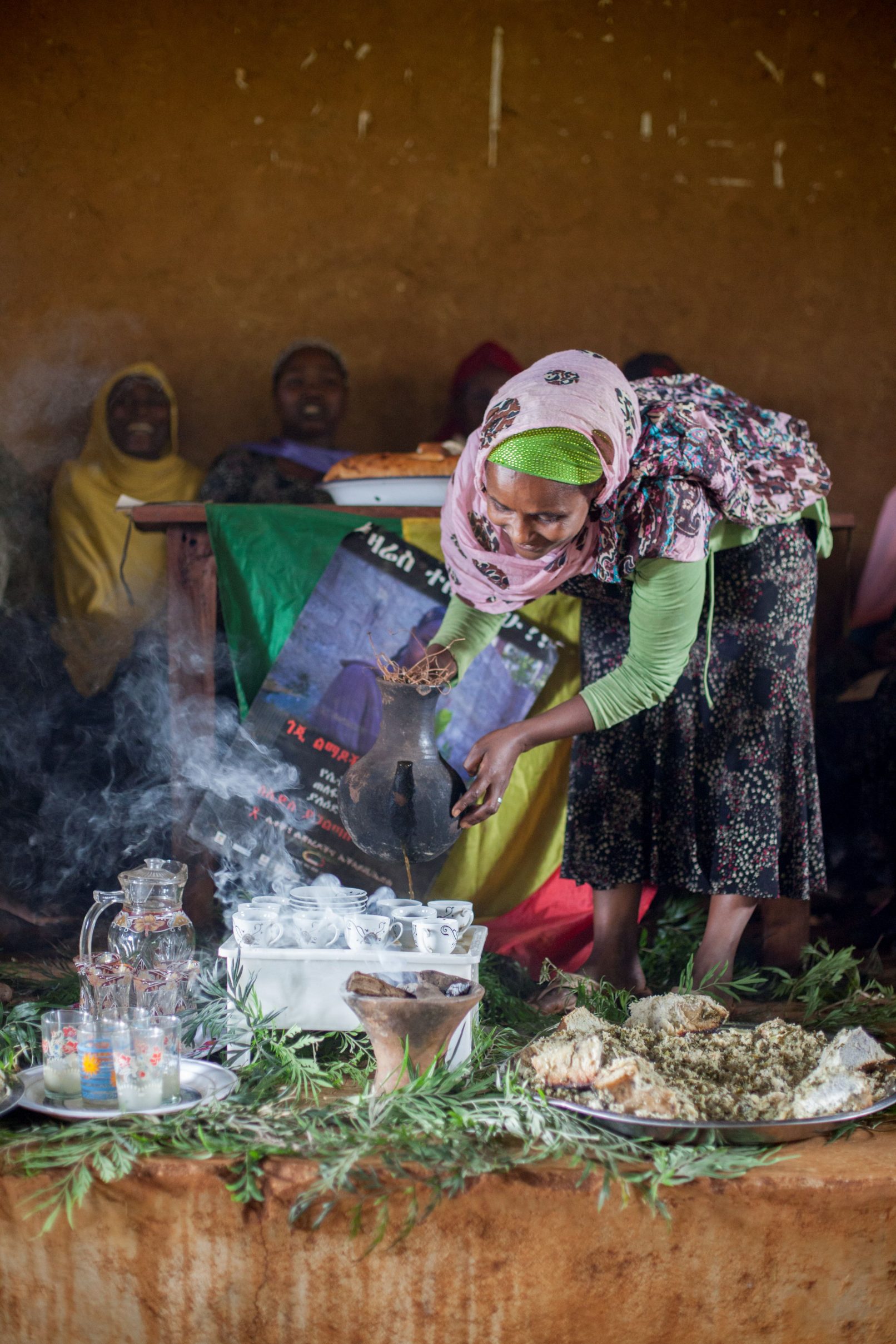
A coffee ceremony takes place at the start of every meeting of the members of the self-help groups and Abebaw Cluster Association (CLA) in Tolta town, 50 kms from Jinka.
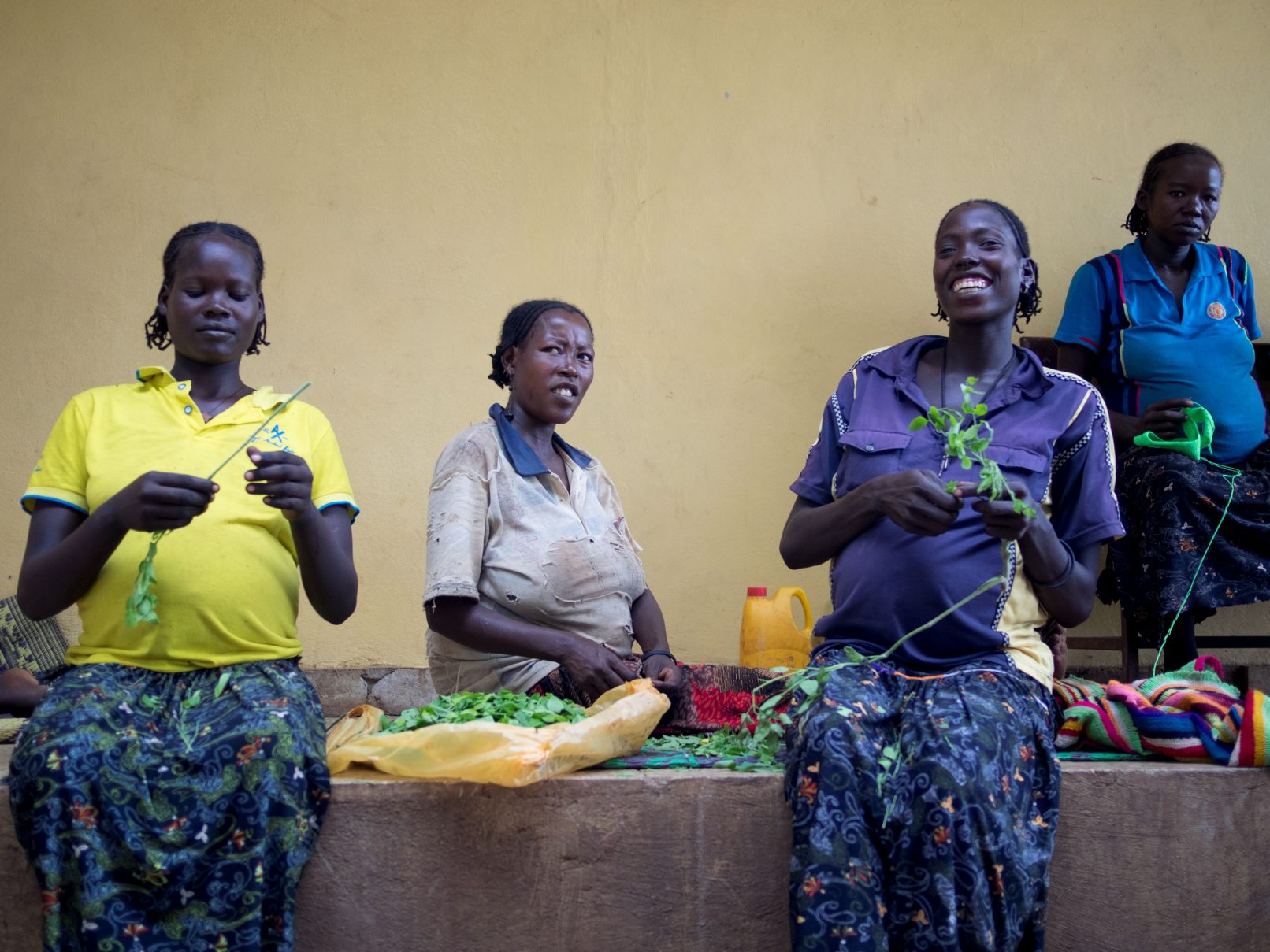
As part of the Ethiopian government's drive to ensure all women give birth in a medical facility, hospitals have anti-natal rooms where women from remote communities stay during the weeks before they give birth to ensure they give birth with medical assistance.
